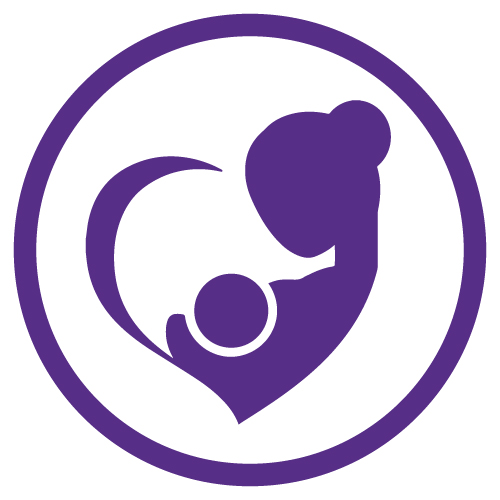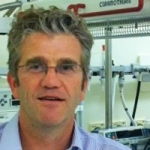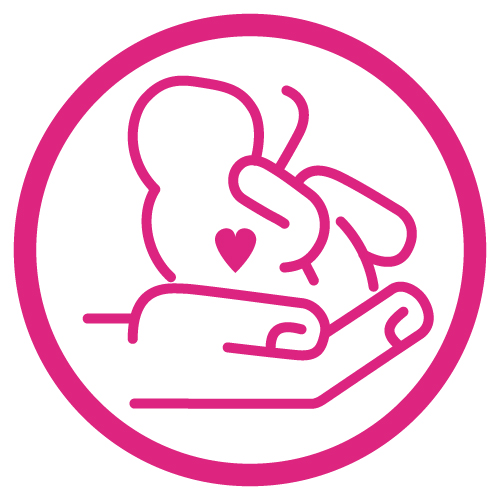 Neonatology Online Course(s) & Continuing Education
Neonatology Online Course(s) & Continuing Education
Access the latest clinical skills and research for Neonatology for Maternal Health professional training. These Neonatology online courses provide practice-changing skills and valuable perspectives from leading global experts. This Neonatology education has been accredited for a variety of CEUs / CERPs and can be accessed on-demand, at your own pace.

Nursing A Preemie, Perspectives For Lactation Supporters and Professionals

Paulina is the mother of three multicultural Latino children and Project Director for Lifespan Local. Paulina earned her BS in Psychology from the Pennsylvania State University, a MS in Organizational leadership from the University of Denver and is completing her PhD in Health and Behavioral Sciences at the University of Colorado - Denver. Paulina has over 18 years of experience working with families with young children. As a Maternal Child Health specialist for Jefferson County Public Health, she developed a NICU follow-up home visitation program and the pediatric emergency preparedness plan, co-founded and coordinated the Conectando Network (former Adelante Jeffco), established community navigation and lactation support groups focused on the Latino Spanish speaking community, and lead other initiatives to support leadership and partnerships among communities and organizations. During the COVID-19 pandemic, she managed the new program Whole Community Inclusion to ensure the pandemic response and recovery implementation included health equity practices that recognize the needs and the strengths of priority populations in the county. Her areas of current work include promoting perinatal and infant mental health along the continuum of care; building community capacity to navigate health and education systems; facilitating organizational change to embrace linguistic and culturally responsive practices; and establishing community-placed participatory programs to strengthen communities. She likes to be with people, learn from and with others, and connect passions for meaningful work.
Topic: From the NICU to the home: mother’s experiences - [View Abstract]
Topic: Leadership Skills in Lactation: Make Extraordinary Things Happen - [View Abstract]
Topic: Liderazgo en Lactancia - Para Alcanzar Metas Extraordinarias - [View Abstract]
Topic: Nursing A Preemie, Perspectives For Lactation Supporters and Professionals - [View Abstract]
In this presentation participants will learn about parents’ experiences with feedings in the NICU and continuation of lactation after going home, the importance of parent-child mutual-regulation and its implication in feeding success, strategies for lactation professionals to support the nursing relationship, and infant mental health concepts in relationship to feeding.
This presentation will include qualitative and quantitative data to broaden participants understanding of the context of lactation with a premature baby or a baby with special medical conditions. The participants will also receive information about multidisciplinary approaches and initiatives to support families with preemie babies.

View Details / Enroll

View Details / Enroll

Optimizing Growth and Body Composition in Preterm Infants: Approaches to Neonatal Nutritional Care in Clinical Practice

Dr Mark Johnson is a consultant neonatologist at University Hospital Southampton NHS Foundation Trust and an honorary senior clinical lecturer in neonatal medicine at the University of Southampton. He is also currently the clinical director for neonatal medicine in Southampton. Dr Johnson graduated in medicine (BM) from the University of Southampton in 2004, and undertook an intercalated degree in biomedical science during his medical training. Dr Johnson was awarded a prestigious NIHR doctoral research fellowship to fund his PhD, which he was awarded by the University of Southampton in 2015. Dr Johnson’s PhD focused on change management in neonatal care in the context of nutrition, successfully implementing improved nutritional practices in order to improve the growth of preterm infants. Dr Johnson's research centres around the nutritional care and growth of premature babies, and the implementation of practice change in order to improve care, and has published on these topics widely, including systematic reviews looking at the use of early parenteral nutrition in preterm infants, the impact of enhanced nutrition on the neurodevelopmental outcomes of preterm infants and the effect of preterm birth on body composition and growth. He has also contributed to national and international guidance on nutritional care.
Current recommendations for the growth of preterm infants are that they should try and achieve the same pattern of growth they would they were still in-utero. This growth should be both the right quantity, but also the right quality in terms of body composition and the relative proportions of fat and lean tissue. This requires higher amounts of nutrition that can be difficult to deliver, meaning that preterm infants are at risk of poor growth and body composition that favours fat accretion over lean mass. This is important, as nutrition, growth and body composition in early life are associated with neurodevelopmental outcomes and longer-term cardiovascular risk. However, the exact pattern of growth that results in optimal short- and long-term outcomes in these infants is not well defined. This talk will explore current patterns of growth, the evidence for the pattern of growth for optimal clinical outcomes, and what can be achieved in clinical practice. It will then go on to consider different strategies for nutritional care and how these can be implemented in clinical practice for preterm infants in the neonatal unit to achieve optimal growth.

View Details / Enroll

Optimizing the Feeding Abilities of Premature Infants to Support Breastfeeding

Robin P. Glass, MS, OTR, IBCLC practices occupational therapy at Seattle Children's Hospital in Seattle, WA and is an Assistant Clinical Professor in the Department of Rehabilitation, at the University of Washington. Her clinical specialty is the treatment of infants, with a strong focus on feeding and swallowing issues. She provides treatment for hospitalized infants including the NICU with a wide range of medical and developmental diagnoses. She is NDT trained and is a 20 year Board Certified Lactation Consultant. Robin has extensive national and international experience speaking about infant feeding.
Robin has received numerous awards including the National Association of Neonatal Therapists (NANT) 2015 Pioneer Award and the 2018 Nancy Danoff Spirit of Service award from the Breastfeeding Coalition of WA and Nutrition First. Robin has co-authored numerous journal articles as well as the book Feeding and Swallowing Disorders in Infancy: Assessment and Management.
Topic: Optimizing the Feeding Abilities of Premature Infants to Support Breastfeeding - [View Abstract]
For the baby born prematurely, learning to breast/chestfeed may be more complex. There are factors related to the infant, the environment and to the lactating parent that can make this process more challenging. Many babies often leave the NICU not fully breastfeeding and continue to struggle once at home. This presentation will describe, evidence-based approaches to developing breastfeeding in the premature infant. It will review developmental and co-morbid factors affecting the infant’s feeding acquisition and describe interventions that can be used to improve breastfeeding skill.

View Details / Enroll

Oral Colostrum Care as an Immunological Intervention in the NICU

Mariana Colmenares Castano was born in Mexico City, and from an early age she was fascinated by animals and nature.She studied medicine at the National University of Mexico (UNAM), and foundher passion as a pediatrician doing her residency at the National Pediatric Institute. When her first child was born she witnessed the lack of knowledge and commitment to breastfeeding within the medical profession, and so she decided to specialize in breastfeeding medicine. She certified as a Lactation Consultant (IBCLC) in 2011.Mariana is a member of the International Lactation Consultant Association, the Academy of Breastfeeding Medicine, and a proud founding member of the National Lactation Consultant Association of Mexico (ACCLAM), where she served on the Board of Directors as Education Coordinator (2014-2019). She is part of board director for the Academy of Breastfeeding Medicine for a 3 year period (2019-2022) and recently named as secretary for the Academy of Breastfeeding Medicine. Mariana is a member of the team for Breastfeeding Country Index BFCI, a project from Yale University and Universidad Iberoamericana. She is consultant for the National Health Institute in Mexico and has collaborated with UNICEF in breastfeeding projects and part of the steering committee for the WHO. She has spoken at national and international conferences, co-published numerous articles and co-authored a chapter for the National Academy of Medicine. At the moment she is a Clinical Fellow in Community Paediatrics in London.
Topic: Breastfeeding The Baby With Congenital Heart Disease - [View Abstract]
Topic: Breastfeeding with Insufficient Glandular Tissue - [View Abstract]
Topic: Clinical Assessment and Management of Jaundice in the Newborn - [View Abstract]
Topic: Oral Colostrum Care as an Immunological Intervention in the NICU - [View Abstract]
Breastmilk must be the food for every human on earth. During the last decades we have been learning much more about the immunoprotective and immunomodulating properties of human milk, specifically colostrum. With advancements in neonatal care, we also have new challenges. As health care professionals it is an ethical responsibility to protect and promote breastfeeding practices for every family. Oral colostrum care is the use of own mother's colostrum in the cheeks and mouth of the baby not for a feeding purpose. It is an opportunity to initiate an immunological intervention in small or sick babies, allowing interaction of immunological properties with the linfoid tissue, promoting and improving microbiome and immune response. The mother and the family can also benefit from this intervention improving and enhancing integral participation and prevalence of breastfeeding in the long term.

View Details / Enroll

Pain Assessment in Ventilated, Sedated, and Muscle-Relaxed Neonates

Bianca completed her undergraduate nursing and midwifery training at the University of Queensland. She has been neonatal nursing for the last six years, and in that time completed her Postgraduate Certificate in Nursing Practice (Neonatal Intensive Care) and her Masters of Advanced Nursing Practice (Minor Thesis) at the University of Melbourne.
In 2016, Bianca participated in a Nursing Research program entitled ‘Building Evidence with Support to Transform (BEST) Practice at the Royal Children’s Hospital (RCH) in Melbourne, Victoria Australia, which were the beginnings of her nursing research journey. She investigated nursing assessment of pain in neonates, and instigated a hospital-wide change in the pain assessment tool utilised in neonates. Since then she has evaluated the clinical utility and inter-rater reliability of the modified Pain Assessment Tool (mPAT) that is now used at the RCH. She is currently a Nursing Research Clinical Nurse Consultant at the RCH.
Neonates admitted to the Neonatal Intensive Care Unit (NICU) undergo numerous painful procedures each day, with fewer than one-third receiving analgesia. This is alarming as neonates who are critically ill and in pain are susceptible to developing life-threatening complications, since they cannot maintain homeostasis in a state of stress. Additionally, the cumulative effects of these painful experiences, has significant negative consequences to the neurodevelopment of these vulnerable neonates.
Pain assessment is fundamental to effective pain management although there is currently no universally accepted scale for pain assessment in neonates, and more evidence is required to determine the reliability and validity of existing pain assessment tools. Additionally, health clinicians do not know if the physiological and behavioural indicators of pain they observe are specific to pain, or a manifestation of the neonates medical condition, disease process, agitation, distress, fear, stress or even sadness. This issue is compounded when the expressive capacity of critically ill neonates is compromised by the administration of heavy sedation and muscle-relaxants. This presentation explores some of the complexities of pain assessment in neonates followed by practical advice for the health clinician, including a look at the modified Pain Assessment Tool (mPAT) and how it can help improve neonatal pain assessment in the clinical setting.

Palliative Care: Why and How to Provide Lactation Support During Serious Illness or Before an Anticipated Death

Elizabeth began her career in maternal health in 2000 after earning a Master of Public Health with an emphasis in maternal child nutrition. She accepted a job teaching childbirth education at the University of Utah Hospital and taught for two years before being promoted to the coordinator of that department.
When the hospital decided to begin the journey to become Baby Friendly, Elizabeth was asked to be on that committee and eventually was asked to be the Baby Friendly Coordinator. During this process, it was a natural step for her to earn her IBCLC. Recently Elizabeth was promoted to the manager of the lactation inpatient team in addition to her other responsibilities.
An advocate for maternal health in all areas, Elizabeth serves as the board chair and founding board member for the Mountain West Mothers' Milk Bank. She is the president elect for the International Childbirth Education Association, and the secretary for PSI-Utah. She sits on the University of Utah Perinatal Bereavement Committee, Discharge Quality Committee, and have served on multiple other committees over the years.
She has been married for over thirty years and is the mom of three children. She still has time to pursue other passions such as singing, gardening, exercising, and spending time with her friends and family.
In non-covid times, she can be found on Friday nights calling Bingo for her church and volunteering in other capacities.
In this presentation you will learn about palliative care, hospice, and anticipated death in the early newborn period and why breastfeeding is still important. We will explore the benefits both nutritionally and psychologically for the family experiencing this difficult situation. Using the story of the family who inspired the presenter to explore the options and choices, participants will gain a better understanding of ways to look outside their usual practice to be a support for families. In times of anticipated death and bereavement, it is sometimes difficult to know what to do or say but being open to learning from others and challenging ourselves to be support in different situations, we have an opportunity to help families heal.

View Details / Enroll


Jim Thigpen has been a pediatric clinical pharmacist for 30 years and is currently an associate professor of pharmacy at East Tennessee State University Bill Gatton College of Pharmacy. When he began his training at MUSC in Charleston, SC, they were investigating Survanta and he has been witness to and a participant in the evolving world of neonatology since. He has spoken at several neonatal nursing conferences over the years and enjoys helping other practitioners learn about and apply pharmacotherapy in this special population.
Topic: Clinical Pain Management in the Neonate - [View Abstract]
Topic: Pharmacotherapy for Hemodynamic Instability in Neonates - [View Abstract]
There are many causes of hemodynamic instability in the neonate, with up to half of very low birth weight (VLBW) infants exhibiting evidence of low cardiac output and poor myocardial contractility within the first 12 hours of life. Failure to appropriately identify and address the causes of hypotension can lead to dramatic consequences in this vulnerable population. Pharmacotherapy is employed to provide action at specific receptors that result in improved cardiac output, relaxation and vasodilation of smooth muscle, as well as specific effects on the kidneys. Although the common agents have been used for decades, there are new developments in therapy. Refinements on patient selection, managing expected side effects, and effective dosing and have continued to evolve.

Physiologic Biomarkers to Detect Subclinical Acute Kidney Injury in Premature Infants

Dr. Marin is currently an Assistant Professor at Augusta University, and is an active researcher in the Level IV NICU at Children’s Hospital of Georgia. She received her BSN from the University of Tennessee, her MSN from Stony Brook and her PhD from Emory University. Dr. Marin’s program of research is focused on defining non-invasive methods to predict early-onset acute kidney injury in preterm infants, including analysis of metabolomics, proteomics, the gut-kidney microbiome axis, and renal hypoxia measured by near-infrared spectroscopy as they relate to subclinical and actual acute kidney disease.
Acute kidney Injury (AKI) prior to the completion of nephrogenesis at 34 weeks’ gestation has significant life-long effects. The immature kidney only receives 3-4% of total cardiac output, compared to 20% in term infants, children and adults. Therefore, minimal decreases in oxygen delivery may substantially compromise proper oxygen utilization increasing the risk for morphologic changes and reduced nephron endowment. Current diagnostic criteria (serum creatinine (sCr) elevations with oliguria) cannot detect early-onset AKI, as up to 50% of nephron damage has already occurred by the time these abnormalities become apparent. This presentation will look at new research related to the current diagnostic criteria for AKI in the preterm infant, the physiologic mechanisms involved in AKI and short and long-term implications.

View Details / Enroll


Dr Embleton has worked in neonatal medicine for the past 25 years, completing clinical training and a research doctorate in neonatal nutrition in the UK, and a neonatal fellowship in Vancouver, Canada. He has worked as a Consultant Neonatal Pediatrician in Newcastle, UK since 2002, one of the largest UK neonatal units, caring for sick preterm and term born neonates. He leads a broad portfolio of research focused on nutrition and gut health in preterm infants. Areas of work include determining patterns of early gut microbial colonization, and how these may predict the development of necrotizing enterocolitis (NEC) and sepsis. He is a project team member of large neonatal feeding trials recruiting >5000 infants in the UK, as well as coordinating mechanistic studies using microbiomic and metabolomic analyses. He chairs the multi-disciplinary UK Neonatal Nutrition Network (N3) and is a member of the Committee of Nutrition for ESPGHAN.
Topic: Probiotics in Preterm Infants - [View Abstract]
Preterm infants are at increased risks of death and serious morbidity, although outcomes have improved significantly over the last 20 years. However, complications associated with gastrointestinal disorders, especially necrotising enterocolitis (NEC), and sepsis are increasingly important problems as respiratory care has improved. There is over-whelming data to support the use of mother’s own breastmilk, but only a few other interventions have shown important impacts on NEC and sepsis. However, meta-analyses, systematic reviews, large scale randomised controlled trials (RCTs) and observational studies all suggest that the administration of probiotics decrease the prevalence of NEC and sepsis, and improve other measures of gastrointestinal function such as enteral feed tolerance. Probiotics are live bacteria associated with a health benefit. Multiple different species and strains are considered to be ‘probiotics’ but only a few of these have been tested in high quality RCTs in preterm infants. This talk will review aspects of gut microbiota development, the interaction between breast milk nutrients and the microbiome and the role of probiotics. Methodological challenges associated with the interpretation of existing data will be discussed, and practical steps and considerations for the use of probiotics and potential risks will be considered.

View Details / Enroll

Protecting Breastfeeding by Facilitating Safe, Early Discharge from NICU with Home Nasogastric Tube Feeding

Amanda is a children's nurse, having worked on pediatric wards and in the community supporting children with complex health needs, although over ten years of her nursing career have been in neonatal care, where she is further qualified in specialty (QiS). She trained and volunteered in breastfeeding peer support two years into her nursing career, ultimately sitting the exam to become an IBCLC to ensure that the families within neonatal care had access to an infant feeding specialist familiar with their journey. Amanda has since further specialized in Neonatal Homecare, is a Nurse Practitioner in restrictive lingual frenulum, and has worked as an Infant Feeding Lead for a regional surgical NICU and SCBU, as well as a regional Infant Feeding Advisor to ten neonatal units across a regional network. She has recently been appointed to the Board of Trustees for the Lactation Consultants of Great Britain (LCGB), where she is the Neonatal Lead.
While approximately 80% of UK mothers initiate breastfeeding, by 3-4 months, just 15% of infants receive any breastmilk. Despite the low rates of breastfeeding nationally, in 2021-22, 64% of the NICU graduates in our unit were discharged receiving breastmilk. One possible reason for the higher rates of breastfeeding in this population may be our innovative home NGT feeding programme. In order to hasten discharge from NICU, many mothers feel under pressure to introduce bottles to meet “full oral feeding” criteria. The home nasogastric tube (NGT) feeding programme focusses on the infant’s and family’s needs, without rushing the infant towards full oral feeding, which some are not yet ready for. In this way, all oral feeds can be at the breast, with NGT feeds as required for supplementation. We aim to reduce unnecessary days in hospital, reduce readmissions post-discharge, keep families close to their infants, and embrace the integration of families as essential members of the neonatal care team. This presentation will discuss the practicalities of designing a discharge pathway that optimises parental confidence and ensures competence with home administration of NGT feeds. It will also discuss how to predict which infants are ideal candidates for short-term home NGT feeding, and how to transition to direct breastfeeding. Finally, the presentation will present a case for home NGT feeding as an intervention to protect the mother’s breastfeeding goals, optimise clinical outcomes for infants, and improve the experience of neonatal care for families.

View Details / Enroll














